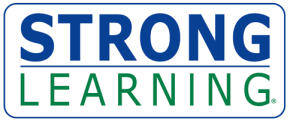Careers
Dear Dr. Linda,
I’ve been a high school math teacher for over 35 years and I’m happy to say, I still love my job. Are things different from when I began? Of course. Are there days that I’m so stressed out that I want to throw the towel in? Yes, but the bottom line is I love teaching math. It’s one of the most satisfying careers I could have gone into. I’m upset that many people aren’t going to go into this profession because of the bad rap it’s getting. I teach a math course at a local college at night. Many of my students tell me that they were thinking of becoming teachers but have spoken to people like a retired aunt, a neighbor who’s a teacher, or someone else who’s told them not to go near it. Please let teens and college kids know that teaching, like any other job, has good and bad days. But if you have the desire to become a teacher, go for it. It’s one of the most rewarding professions they could be in. Thank you. Ken
Dear Ken,
According to a survey done years ago by the National Opinion Research Center, “The most satisfying jobs are mostly professions, especially those involving caring for people such as teaching and protecting others and creative pursuits.”
Research has supported the fact that service careers are at the top of the list for job satisfaction. These include clergy, firefighters, police, physicians, teachers, and college professors to name a few. In terms of creative pursuits, actors and singers were also at the top of many lists.
Finding the right career choice is one of the most important decisions anyone can make. Therefore, students and parents have to be open-minded about different career choices. Few people stay in the same job until they retire as their grandparents and great-grandparents did. Others will remain in the same career even if they change jobs or move to a different city or state.
Students can take tests in high school to help them determine a particular career direction, but they’re often not valid or reliable at that age. Some students will discover career possibilities they didn’t know existed when they get to college. Many high schools hold career days in which students meet various people with different careers. And some people wind up in a career they never knew about purely due to circumstances in their lives.
Other people will have a satisfying career in one field and then completely change directions and do something else. So even though choosing a career is an important decision, students need to know that they won’t necessarily have to work at this career until they retire.
Choosing a career is based on individual likes, dislikes, interests, values, needs, and circumstances. It’s not based on the experiences of relatives or neighbors. Young people need to do their own research. Everyone has their own needs, personality, and values.
Teens need to be exposed to various careers so that they are informed. This means talking with lots of people who have different careers.
To start figuring out possible careers, students can read the list of courses and course descriptions for different majors from college catalogs. They’ll find catalogs online or can pick one up from a local college. Students note the courses they’d love to take. What is the major of the most courses selected? When there’s a strong preference, a student would probably love that major and career. If no clear choice is evident it doesn’t matter as students don’t have to choose a major right away and can always change majors. But students need to remember they have options in life. If the job doesn’t turn out to be what was expected, it’s good to keep in mind that many people change careers during their lifetime.
Dr. Linda
Co-author of Why Bad Grades Happen to Good Kids and director of Strong Learning Tutoring and Test Prep, Inc. If you have any questions you’d like to share with Dr. Linda, email her at Linda@stronglearning.com.

